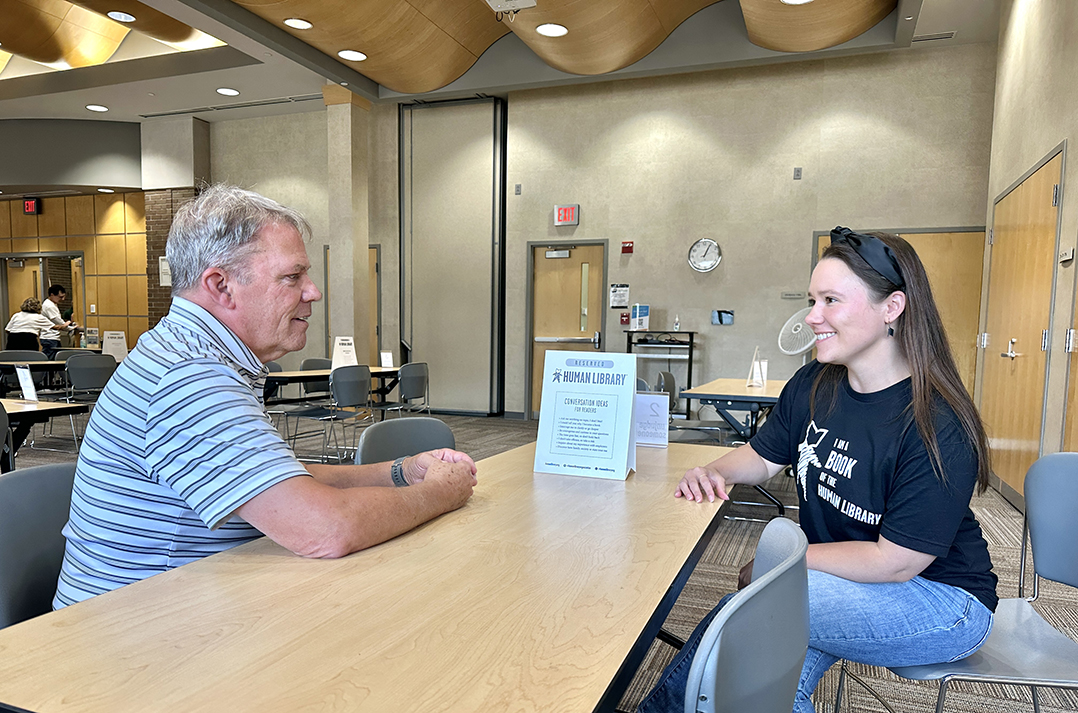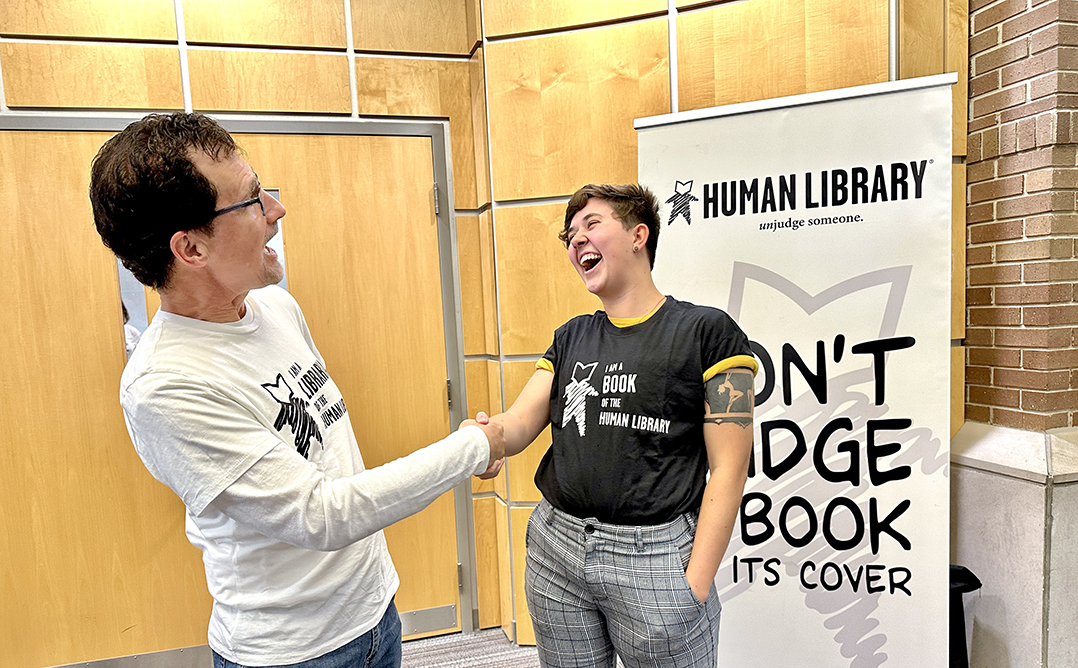Well before the Human Library event started July 15, about a dozen people had lined up in the hall outside the event space at Hamilton East Public Library in Fishers, eager to read a new book.
Titles available for checkout included “Abortion,” “Buddhist,” “Neuro-Diverse” and “Transgender.” These books aren’t made of bound paper pages, though. These books are humans — real people with real experiences and personal stories that they were willing to share through 30-minute, 1-on-1 conversations with their readers.
The goal of Human Library events is to break down negative stereotypes and help people better understand other points of view by simply talking with someone they might not otherwise have an opportunity to meet.
Rachel Replogle was one of the “books” available for checkout during the Fishers library event. Her book title is “Ex-vangelical.” Her conversations with readers are confidential, but following the discussion, she agreed to a quick interview and for Current to use her full name.

Replogle said she was a brand-new book and decided to volunteer for the program because she believes a lot of what’s missing from conversations is nuance and the willingness to listen.
“There’s a lot of polarization that’s happening — echo chambers and social media,” she said. “And so, I think it makes having conversations with people who are different from you very difficult. Learning how to listen I think is a skill that we could all benefit from, and learning how to convey information in a way that’s not triggering or overwhelming, or info-dumping is also a skill. And also learning how to listen in a way that is affirming of other people, I think is a super important skill set for people to have right now. And I think events like this are doing a great job of cultivating those environments.”
Replogle, 25, said she was raised in an extremely religious Christian home. Her parents worked as missionaries on college campuses, she said, and their home life was wrapped up in strict interpretations of faith.
“Over the course of reading different theologians, actually, and slowly becoming more progressive within the Christian faith, I eventually reached a point where I felt that I no longer believed the core pieces of the faith that made it what it was,” Replogle said. “And that led me to leaving the faith — as well as being a queer person. It’s very difficult to find a Christian community as a queer person.”
She said it was difficult to leave the life she’d been raised in, but she was able to find a support network outside of the Christian faith.
“I have found community and emotional depth that I’ve never known before,” she said, “And I felt more comfortable and more confident in who I am since then, and I’ve never loved as deeply both of myself or another person as I have since making that life-altering decision.”
Paul Labbe of Noblesville was a reader during the event. He checked out a human book about international adoption. He had wanted to read a human book about immigration, but none were available that day,
“But I thought, ‘Well, let’s talk about international adoption and all the issues dealing with bringing kids back to the (United) States,’” he said, adding that he learned a lot from the reading. “It was fantastic. The book, she was very open. It was a great book. It was just fabulous.”
Labbe said the half-hour time limit wasn’t enough, and they could have talked for at least 20 more minutes. He considered checking out another book, but the line of readers was pretty long, and he didn’t have time to wait. But Labbe said he would attend another Human Library if it returns.
The Human Library is an international organization that was founded in 2000, with headquarters in Denmark. According to its website, humanlibrary.org, it operates on six continents and hosts activities in more than 80 countries.

How to become a Human Library book
According to the Human Library website, humanlibrary.org, a book is a volunteer who represents a stigmatized group in a community and can answer questions to help challenge stereotypes and promote understanding.
Those interested in volunteering can fill in an online application form, and then will be interviewed. If the volunteer seems like a good fit, they will be trained and then can start attending events.
Volunteers are not paid, but according to the website, they are compensated in other ways,
“You get to meet and learn about people that will inspire you and lift you and give your network new life,” the website states. “Perhaps make new friends and for sure you will gain insight into what others think, believe and dream of. You will become rich on humanity and you may gain a greater understanding of yourself also. Part of the rewards in this work is realizing that the only thing that is not reduced when shared is knowledge.”
To start the process for becoming a human book, visit humanlibrary.org/meet-our-human-books/get-published.



